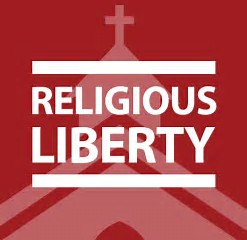In some ways, I had the typical experience of the 4th of July holiday when I was growing up. My folks were not “in-your-face” patriotic, but certainly taught us gratitude for our nation. My dad put out the flag for Memorial Day, Flag Day, and the 4th of July, and my mom made sure we dressed in red, white, and blue for Independence Day. They always took us to fireworks displays. Instead of the typical barbecue, though, we would have cake, ice cream, and my sister Beth’s favorite home-cooked meal, since she was a 4th of July baby. We respected the military troops (sadly not the case for every family after Viet Nam). Though not in combat, my dad was in the Army during WWII, and while not by temperament a military man (he hated basic training and much of the experience), he did appreciate the sacrifice military men made for their country and went to the near-annual reunions with his Army buddies almost until the end of his life.
But in other ways, I was not typical. My dad was a professor of American history, specializing in the Revolutionary War and the ethnic migration to the United States. So, like it or not, I learned a lot about our nation’s history. Every family vacation seemed to turn into a history lesson, when we stopped by every historical marker on the road. Because of my dad’s breadth of historical knowledge, I also learned what most children knew nothing about: the deep-seated anti-Catholicism embedded in our nation’s history from pre-Revolutionary times onward: from the times when Catholics were forbidden to own property, to the explicitly anti-Catholic political parties such as the 19th Century Know-Nothings (who also hated immigrants in general), to the fact that nativist groups such as the Ku Klux Klan were as anti-Catholic as they were anti-African-American. To this day, this is a vastly undertold story. Since both of my parents were grandchildren of immigrants, these all hit close to home.
My father was deeply interested in – and proud of – the American experience of these immigrants from so many nations – many of them Catholic – coming together to find freedom in the United States. But it wasn’t just academic for him. He believed that his personal friendships with people of various cultures and ethnicities enriched his life.
For all of these reasons and more, if he were still alive, he would have been deeply saddened by recent trends in our nations. As an academic, for instance, he would have vigorously opposed what is sweeping our colleges and public schools now: divisive ideologies such as “critical race theory,” which try to pit European-Americans against African-Americans and hold that our systems are systemically racist and oppressive.
But my dad was also what we all should be: more Catholic than American. That is, despite being a reasonably patriotic citizen of the United States, he was most concerned with his wife and children becoming citizens of Heaven. His faith was at the core of his being and on this he simply would not compromise.
Thus he certainly would not have taken lying down the many trends we see in the abridgment of religious liberty in our culture, especially attempts to prevent the practice of Christianity and particularly the Catholic faith.
Like so many Americans with immigrant and blue-collar roots, he was very supportive of politicians and leaders who were for the poor and the common man, but drew the line at supporting anyone whose policies were ever remotely pro-abortion or anti-family. He was nothing if not deeply committed to Christian family life. Since he was very astute, I’m not sure whether or not he would have been surprised at the number of baptized Catholics today who betray the teachings of their own faith and brag about it.
But knowing how often in history that religious liberty was attacked, I suspect that he would be dismayed, but not surprised, at the number of spheres of life where threats to religious liberty now abound: from the government, certainly, in attempting to force people to support contraception, abortion, and euthanasia against their conscience and the constant tradition of the Church; but also more subtly from private entities, who have in recent years with stunning speed begun to embrace anti-Christian ideologies such as the homosexual marriage and transgender movements. I have committed Catholic friends who work for large corporations local corporations who know that being too public about their Catholic beliefs would seriously be harmful to their careers.
It is certainly troubling that in our day, prominent voices explicitly attack without repercussions those who are “too Catholic” as not fit for public life and office. Several prominent senators, including the current Vice-President, unashamedly hinted in public they should not serve. A recent presidential candidate’s campaign was exposed with leaked emails openly mocking Catholics as “severely backwards” members of a “medieval dictatorship.” Again, hardly a peep from the people and many of our bishops stayed silent. Certainly a sign that anti-Catholicism is still very much alive and well, perhaps the last acceptable prejudice.
But we seriously err if we believe that we practice our faith in order to win the esteem of men. We defend our God-given right to do so, no matter the ridicule it brings. “If the world hates you, know that it hated me before you.” (John 15:18). We turn to Christ – and the intercession of the saints – to help us witness to our Lord and Savior.
